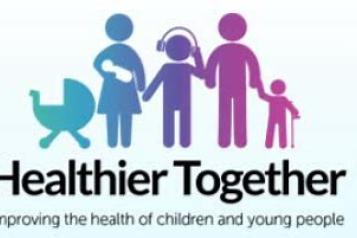The hidden wait to be prescribed ADHD medication

In Healthwatch England's recent report, they highlighted the positive impacts that an ADHD diagnosis could bring to people. Their poll found that the top three impacts were:
- Self-understanding and acceptance (84%),
- New strategies to manage their ADHD traits (58%)
- Look after their mental health and wellbeing (58%).
The feedback they have received also shows that medication can help with common ADHD traits such as poor organisation, impulsivity and difficulties concentrating.
“Being diagnosed aged 61 and subsequently being medicated has had a massive positive effect on my life on so many levels. I can now sit and read a book which I couldn’t beforehand. I am eating and looking after myself so much better. I’m finding it much easier to actually listen to other people. I can sit and watch the TV now.”
White British woman, 50 - 64, County Durham
Recent research has shown that taking ADHD medication can reduce the risk of suicidal behaviours, substance misuse, transport accidents and criminality.
Healthwatch England's own research has also revealed that medication helps some people. Over two in five (44%) of the respondents diagnosed with ADHD said that the medication they had been prescribed made it easier to manage their ADHD traits.
However, the experiences people shared with them showed that not everyone who had been diagnosed with ADHD was receiving medication.
For some this might be their choice. But they heard about people who couldn’t be prescribed medication due to a history of heart problems or high blood pressure. And they also heard about people who had additional lengthy waits to be prescribed medication after they had already waited for an assessment.
Why are there long waits to be prescribed ADHD medication after diagnosis?
According to NICE guidance, all medication for ADHD should only be initiated by a healthcare professional with training and expertise in diagnosing and managing ADHD. People who have been diagnosed with ADHD need a full physical and mental health assessment, including having an electrocardiogram (ECG), before an assessment of which medications might best help them can take place.
The healthcare professional will spend time working out the right medication and optimal dose for each patient. This process is known as titration and can take several months.
Once the right medication and dose have been established, the healthcare professional should arrange for the patient’s GP to take over prescribing the medication under a shared care agreement.
A healthcare professional with training and expertise in managing ADHD should undertake a comprehensive review of ADHD medication at least once a year and discuss with the patient whether medication should be continued.
How long are people waiting?
While there are no official statistics on the wait to be prescribed ADHD medication, information provided on websites for NHS providers and private companies that undertake right to choose ADHD medication titration suggest that waits for medication could be up to a year.
For example, South West London and St George’s Mental Health NHS Trust’s website states that the average number of weeks patients were waiting at the end of last month for ADHD titration was 23.5 weeks in Merton, 30.7 weeks in Richmond and 23.5 weeks in Sutton. Psychiatry UK, a private organisation that does private and NHS Right to Choose ADHD assessments, states that their wait time for adult ADHD titration is up to 10 months between the ADHD assessment and the start of titration.
People’s experience of waiting
In Healthwatch England's survey, they heard about long waits for titration that people weren’t expecting on top of the long wait they had experienced to get the ADHD assessment. People talked about a range of waiting times, including up to two years:

“I have the diagnosis, which took 4 years, but I am still 20 months later, waiting to go on the waiting list for medication - which was the whole reason for wanting a diagnosis.”
White British woman, 25 – 49, Essex
They often had to be referred to another organisation for the medication titration, which can involve a long wait to be seen. One person who had been diagnosed in their late teens by CAMHS had to wait to be assessed by adult services:
“I was diagnosed with ADHD. Unfortunately I am now too old for CAMHS so have been referred to adult services to complete further diagnosis. This is a two year wait, so I can't have medication until I see them. So I am still struggling.”
White British man, aged 18 – 24, Cornwall
Furthermore, titration involves trials of different medication and doses before the appropriate ones are identified. This is important to ensure that people get the right medication for them, yet the process can take a few months.
A struggle to get GPs to prescribe ADHD medication
Once people with ADHD have the right medication and dose, GPs should take over prescribing the medication under a shared care agreement, with the specialist undertaking annual reviews. GMC guidance states that shared care agreements require the agreement of all parties, including the patient.
In the Healthwatch England survey, people described facing a battle with their GP to get them to take over shared care and give them NHS prescriptions (even where the assessment and titration were undertaken via Right to Choose).
People with ADHD described how devastated they felt having waited a long time for a diagnosis, a further wait for titration and then being rejected by their GP.
Someone who had waited six years in total to go through the process of referral, diagnosis by a Right to Choose provider and then titration, said:
“I spoke to my GP today who has dismissed any support as it must be done with clinical partners and possible shared care. It feels like a lack of empathy in GP surgeries has caused a lot of stress along with ridiculous waiting times!”
White British man, aged 25 – 49, Darlington
What is causing the problems with shared care agreements?
They ran their survey in January 2025, so some of the feedback they received on this subject may have been the result of collective action by GPs against the proposed changes to the NHS GP contract, where one of the actions was to withdraw permission for shared care.
Whilst the BMA have now fully agreed changes to the 2025/26 contract, they recommend GPs to continue to follow their guidance on safe working, which includes refusing to take on shared care agreements.
The impact on patients who can’t get a shared care agreement
The consequences for people with ADHD include having to pay privately for ADHD medication, which sometimes caused or exacerbated financial difficulties:
“I tried medication but my GP refused shared care. I was paying £110 monthly. I’m a single parent and couldn't afford to have the meds”
White British woman, aged 25 – 49, Surrey
They heard that people who were diagnosed privately either had to do without medication or had to go on another waiting list to be diagnosed by the NHS. This is due to concerns about the quality of ADHD assessments from some private providers. To people with suspected ADHD, this can be frustrating:
“I initially received a private diagnosis. I then couldn't afford the medication. So, my GP referred me to NHS services, who wouldn't accept my private diagnosis. I then had to go on the waiting list and wait for an NHS assessment.... To tell me what I already knew, that I have ADHD.”
White British woman, aged 25 – 49, Cornwall
Healthwatch England recommendations to improve care
Publish official data on titration waiting times.
There are no official targets or data collected on waiting times for titration. External research shows variation in waiting times for some, and a totally hidden wait for others. Their research shows that publication of this data would provide people with clarity, particularly after long waits for assessment.
Fix shared care commissioning so people can get the medication they need.
Whether discharged from a hospital team with a prescription or sent back to GPs from independent providers, they have heard from people who struggle to access the medicine they need following an ADHD assessment. Clarity over shared care commissioning and follow-up arrangements is needed, which will require collaboration between NHS England, the General Medical Council (GMC), and the Care Quality Commission (CQC).
Improve communication and signposting to help people understand the process of accessing ADHD medication.
This should be via NHS information shared when people are referred, and from independent providers, including those who offer assessment-only services. The government should also look at how to address issues from unregulated and unregistered independent providers conducting assessment-only services.
Pilot the prescription of ADHD medicine by GP and pharmacy teams.
In the long term, they have called for ADHD assessments to move from hospital teams, where there are long waits, to primary and community care teams who work closer to people’s homes. As part of this shift, earlier prescription of preventative medication should be explored to better help people while they wait for an assessment.
Act to mitigate the impact of medication shortages.
The government must continue to find solutions to medicine shortages while doing more to keep the public up to date. This includes producing clear and official information to support people experiencing a shortage to understand timelines and next steps.
Want to learn more about Healthwatch England's research on the impact of ADHD?
Healthwatch England recently published research on the impact ADHD has on people's lives and how that can be spread across multiple areas of their life. Read about the changes they are calling for to ensure everyone gets the support they need.


